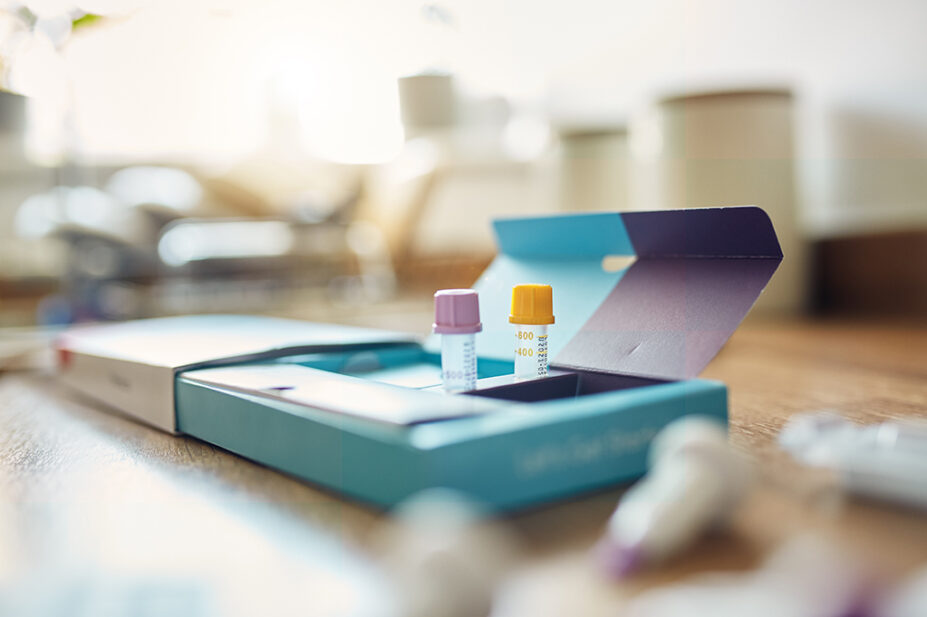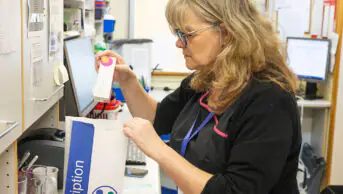
Shutterstock.com
Greater regulatory oversight is needed for self-testing kits sold in the UK, according to a cross-sectional review.
The two-part review, published in BMJ on 23 July 2025, assessed whether self-testing kits are fit for their specified purposes, offer genuine public health benefits, reduce demands on the NHS and meet standards of safety and reliability.
Researchers looked at 30 self-testing kits, commonly available over the counter in community pharmacies and supermarkets.
These test kits target 20 biomarkers linked to 19 different health conditions, including menopause indicators, urinary tract infections, stomach ulcers, and cholesterol, iron and vitamin D deficiencies.
The authors revealed that of the 30 self-testing kits featured in the review, most kits (70%) “did not progress or close care pathways”.
Nine of the kits (30%) “either recommended further confirmatory testing regardless of the test result or did not provide recommendations for action after positive or negative test results”, the authors added.
The language used in the kits information leaflets to describe the clinical condition being tested for was sometimes vague and inconsistent, the authors said, noting that a test for prostate-specific antigens was described as an “indicator of prostate health”.
The authors added that the evidence for the accuracy of the kits was often not publicly available, while accuracy claims “are largely those of analytical accuracy in a laboratory setting compared with a laboratory comparator, not the experience of a lay person using the test for self-diagnosis of a clinical condition”.
Users of the tests “will often have no medical or laboratory expertise”.
“Therefore, it is essential that the information, sampling, and test equipment are understandable, robust, and user friendly for the public,” the authors said.
The authors also said that while some tests are endorsed by the NHS and the National Institute for Health and Care Excellence (NICE) — for example, pregnancy tests and blood glucose monitoring tests — most have no published guidance or endorsement.
As a result, more regulatory oversight of self-testing kits is “urgently needed”, as their popularity continues to grow, the authors argued.
The authors confirmed that they have shared the findings with the Medicines and Healthcare products Regulatory Agency (MHRA), “who have taken note with concern and are taking action”.
Joseph Burt, head of diagnostics and general medical devices at the MHRA, said: “We take the safety of self-tests very seriously. We will review the evidence presented by the researchers and consider all allegations about device deficiencies. We have strengthened post-market surveillance powers to monitor and act on concerns. These require manufacturers to actively monitor their products and report significant incidents to us, including for CE-marked self-tests.
“We’re overhauling the medical device regulations to further strengthen standards for safety, usability and clinical performance — and we’re exploring new transparency measures, such as requiring published summaries of clinical evidence.
“In the meantime, we strongly encourage anyone using a self-test to check for a CE or UKCA [UK Conformity Assessed] mark, read the instructions carefully and seek medical advice if they’re unsure about their result.”
Burt added that the MHRA is “committed to ensuring all medical devices available in Great Britain meet high standards of safety, quality and performance. […] more details on the future regulations will be published soon, including classification of self-tests and the claims that can be made on these tests”.
“We urge anyone who experiences a fault or harm to report it via our Yellow Card scheme,” he said.
Wing Tang, head of professional standards at the Royal Pharmaceutical Society, said: “We welcome this review and its focus on improving the quality of self-testing kits. While these products can support self-care and help ease pressures on the wider health system, the findings highlight the need for consistency in the information provided to patients and follow-up advice.
“We would support working with regulators and other stakeholders to ensure clear professional and regulatory oversight of self-testing so people can use the kits with confidence.”


